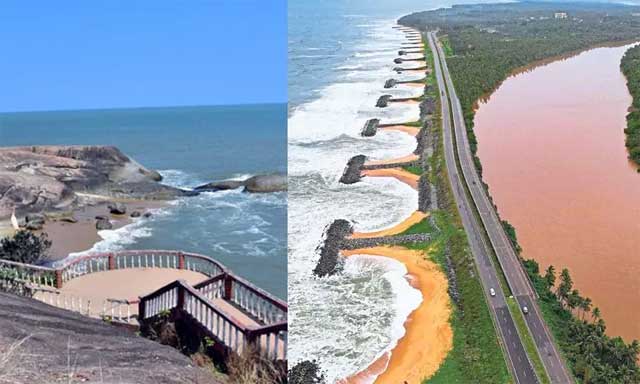Daijiworld Media Network - Kundapur
Kundapur, Sep 3: The World Bank has agreed to provide Rs 840 crore to make the three coastal districts of Karnataka plastic-free.
The grant has been sanctioned under the Karnataka Strengthening of Coastal Resilience Economy (K-shore) project, which covers a 320-km stretch of coastline across Dakshina Kannada, Udupi, and Uttara Kannada. The Department of Economic Affairs, Government of India, has approved the project, which is part of the World Bank’s South Asia initiative for plastic-free rivers and oceans.

Karnataka’s K-shore project
This regional project covers eight coastal states and three coastal union territories of India. It will be implemented through the departments of forest and wildlife, fisheries, urban development, rural development, and panchayat raj. Each department has prepared its own action plan.
The objectives include pollution control, improving waste management capacity, job creation in coastal areas, building plastic-free coastlines, preventing sea erosion, and protecting marine life. The project will also help conserve olive ridley turtles and dolphins along the coast.
Detailed project reports
Nine detailed project reports (DPRs) have been sent to the central government for approval—two from Dakshina Kannada and Uttara Kannada, and seven from Udupi zilla panchayat.
In Udupi district, four existing material recovery facilities (MRFs) will be upgraded, and 11 new multi-panchayat waste processing units will be set up. Each unit will cost Rs 1.5 to 2 crore. The capacity of existing plants will also be expanded—for example, units with a capacity of 5 metric tonnes will be upgraded to 10 MT, and those with 10 MT will be enhanced to 15 MT.
Udupi district will also receive 100 vehicles for waste collection. Biomedical waste management models from Ujire and Padubidri will be replicated in other areas, while diaper and hospital waste processing facilities will be strengthened. New technology will allow waste to be incinerated using electricity instead of diesel.
Forest department initiatives
The forest department will focus on mangrove development and afforestation along riverbanks, estuaries, and coastal stretches, with bamboo and cane plantations planned. On the banks of 16 rivers that originate in the Western Ghats and flow into the Arabian Sea, small check dams and barriers will be built. Plastic waste barriers will be installed along rivers to prevent flow into the sea. Fishermen and local communities will also be involved in beach cleaning activities.
Plastic-free temples and trekking routes
Pilgrimage centres such as Kukke Subrahmanya, Dharmasthala, Kateel Durgaparameshwari, Udupi Sri Krishna, and Kollur Mookambika temples will be developed as plastic-free zones. Devotees will be encouraged to switch to eco-friendly alternatives instead of plastic items. Awareness will be created among visitors, and waste bins will be installed at entry and exit points of trekking routes and forests. Collected plastic waste will be sent to MRFs for processing.
Speaking about the initiative, Udupi MP Kota Srinivas Poojary said, “Making coastal districts plastic-free, setting up new waste management units, and upgrading existing ones will be undertaken under this Rs 840 crore project with World Bank assistance. Funds will be shared across three districts in coordination with five departments.”
Udupi zilla panchayat CEO Prateek Boil said, “We have submitted DPRs to the central government, which include construction of 11 new MRF units, upgrading four existing facilities, purchase of 100 vehicles for waste collection, and setting up biomedical waste management units. The goal is to make coastal Karnataka plastic-free.”